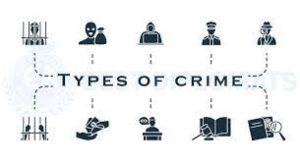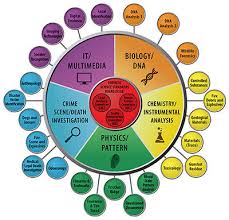Introduction

Crime and criminals, like in any other society, exhibit various characteristics in the United Arab Emirates (UAE). Here’s some detailed information on general characteristics of crime and criminals in the UAE:
Low Crime Rate
The UAE has a reputation for being one of the safest countries in the world. This is largely due to stringent law enforcement measures, strict penalties for criminal behavior, and a relatively small population.
Strict Legal System
The UAE has a strict legal system based on Islamic law (Sharia) and a combination of civil law principles. Punishments for crimes can be severe, including lengthy prison sentences, fines, deportation, and in some cases, corporal punishment.
Diverse Population

The UAE is home to a large expatriate population, with residents coming from various countries and cultural backgrounds. This diversity can influence the types of crimes committed and the characteristics of criminals.
Economic Motivations
Economic factors can play a significant role in criminal behavior. While the UAE boasts a prosperous economy, socioeconomic disparities exist, and some individuals may resort to crime out of financial desperation or greed.
White-Collar Crime

With its thriving business and financial sectors, white-collar crimes such as fraud, embezzlement, and cybercrime are not uncommon in the UAE. These crimes often involve professionals or individuals in positions of authority exploiting their positions for personal gain.
Transient Population
The UAE attracts a large number of tourists, expatriate workers, and business travelers. This transient population can contribute to certain types of crimes, such as theft, scams, and human trafficking.
Drug Offenses
Despite strict anti-drug laws, drug offenses still occur in the UAE. Trafficking, possession, and consumption of illegal drugs are serious offenses that can result in harsh penalties, including imprisonment and deportation.
Cultural Sensitivities

The UAE places a strong emphasis on preserving its cultural and religious values. Certain behaviors that may be considered relatively minor offenses in other countries, such as public displays of affection or disrespecting local customs, can result in legal repercussions in the UAE.
Stringent Immigration Laws
The UAE has strict immigration laws, and individuals who overstay their visas or work permits can face legal consequences. This can lead to a subset of individuals engaging in illegal activities to sustain themselves or evade authorities.
Efficient Law Enforcement
Law enforcement agencies in the UAE are well-equipped and highly trained. Surveillance technology, including CCTV cameras and facial recognition systems, is widely used to monitor public spaces and deter criminal activity.
Types of Crime:
Property Crime

This includes theft, burglary, robbery, and vandalism. While the UAE has a relatively low rate of violent crime, property crimes can still occur, especially in urban areas.
Financial Crimes
These crimes involve fraud, embezzlement, money laundering, and cybercrime. Given the UAE’s status as a global financial hub, it is a target for various forms of financial fraud and cyberattacks.
Drug Offenses
The UAE has strict laws regarding drug trafficking, possession, and consumption. Despite the harsh penalties, drug-related crimes still occur, often involving smuggling and distribution networks.
Traffic Violations
Reckless driving, speeding, and driving under the influence of alcohol or drugs are considered serious offenses in the UAE. Traffic accidents resulting from these violations can lead to criminal charges and hefty fines.
Criminal Justice System
Legal Framework
: The UAE’s legal system is based on a combination of Sharia law and civil law principles. Courts in the UAE consist of Sharia courts, civil courts, and specialized courts for specific matters such as labor disputes and financial crimes.
Penalties
Penalties for criminal offenses in the UAE can be severe. Depending on the severity of the crime, punishments may include imprisonment, fines, deportation for expatriates, and in some cases, corporal punishment.
Legal Procedures
The UAE follows due process in criminal proceedings, including the right to legal representation and the presumption of innocence until proven guilty. Trials are conducted in Arabic, although interpreters are provided for non-Arabic speakers.
Characteristics of Criminals:
Nationality
Criminals in the UAE come from diverse backgrounds, including Emirati nationals, expatriates, and individuals from other countries. However, expatriates are more likely to be involved in certain types of crimes, such as visa violations and financial crimes.
Socioeconomic Factors
While the UAE has a high standard of living, socioeconomic disparities exist, and some individuals may turn to crime due to poverty or financial pressures.
Organized Crime
Organized crime groups, both domestic and international, operate in the UAE, engaging in activities such as drug trafficking, human trafficking, and money laundering. Law enforcement agencies actively work to dismantle these networks.
Youth Offenders

Like in many countries, youth offenders in the UAE may engage in delinquent behavior due to factors such as peer pressure, family issues, or lack of opportunities. The government has implemented various programs aimed at rehabilitation and reintegration of juvenile offenders.
Prevention and Enforcement
Law Enforcement
The UAE has well-trained and equipped law enforcement agencies responsible for maintaining public safety and enforcing the law. This includes the police force, immigration authorities, and specialized units tasked with combating specific types of crime.
Community Policing
Community engagement and collaboration with law enforcement are encouraged to prevent crime and promote safety. Community policing initiatives involve working closely with residents to address local concerns and build trust between the police and the community.
Public Awareness
Public awareness campaigns are conducted to educate residents about the law, crime prevention strategies, and the consequences of criminal behavior. These campaigns often target specific issues such as drug abuse, traffic safety, and cybercrime awareness.
Psychological Impact on Society:
Crime can erode social cohesion and trust, leading to increased feelings of insecurity and anxiety among the general population. Perceptions of crime may shape public attitudes towards issues such as immigration, poverty, and social welfare policies, influencing political discourse and policy decisions.
Addressing the impacts and implications of crime requires a comprehensive approach that encompasses prevention, intervention, rehabilitation, and community empowerment. By investing in strategies that address root causes, promote social cohesion, and prioritize the needs of victims and vulnerable populations, societies can work towards creating safer and more resilient communities for all.
Conclusion
the UAE takes a comprehensive approach to addressing crime, focusing on prevention, enforcement, and rehabilitation to maintain public safety and uphold the rule of law.Overall, while crime exists in the UAE like any other country, the combination of strict laws, efficient law enforcement, and a focus on maintaining social order contributes to its reputation as a safe and secure society.


